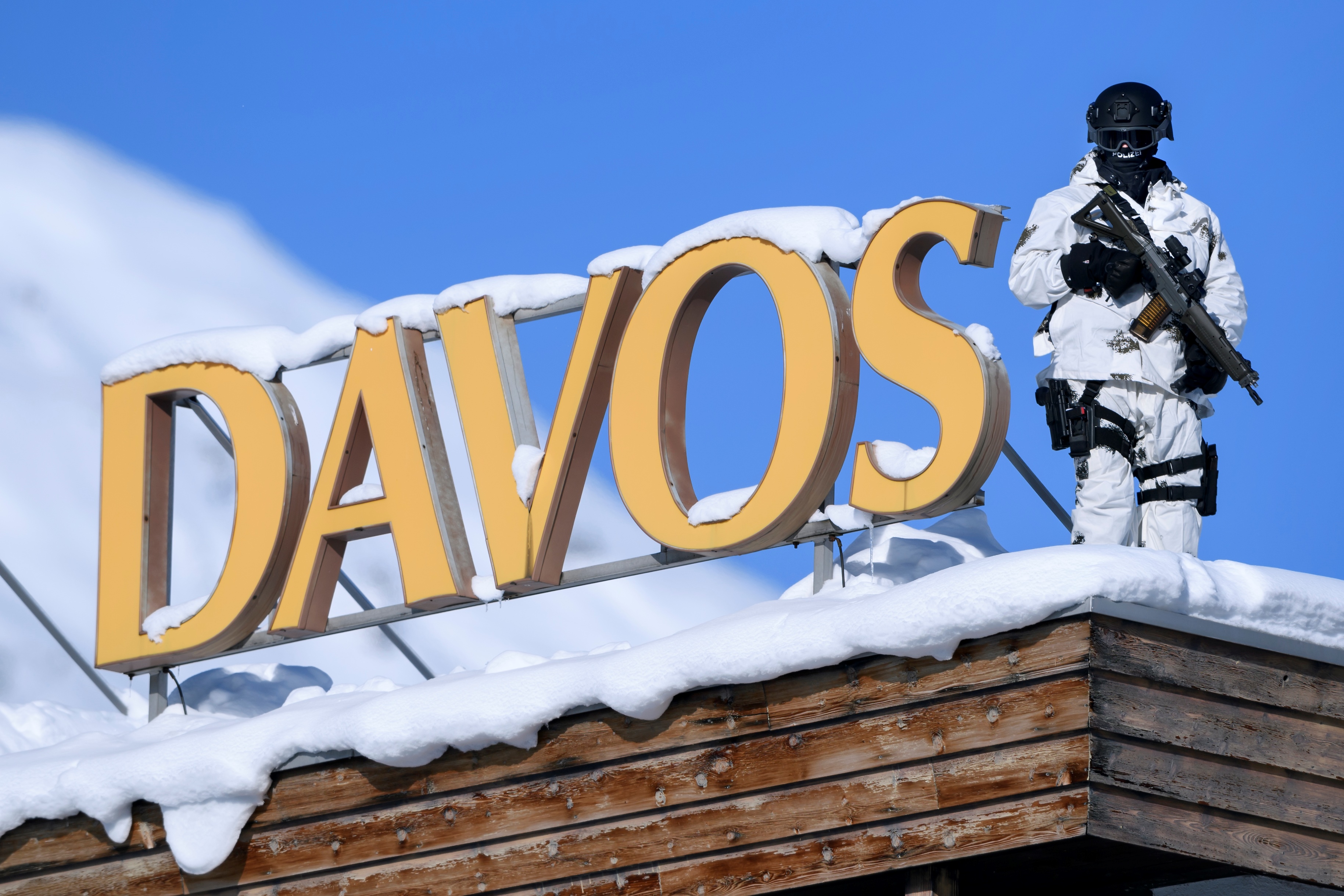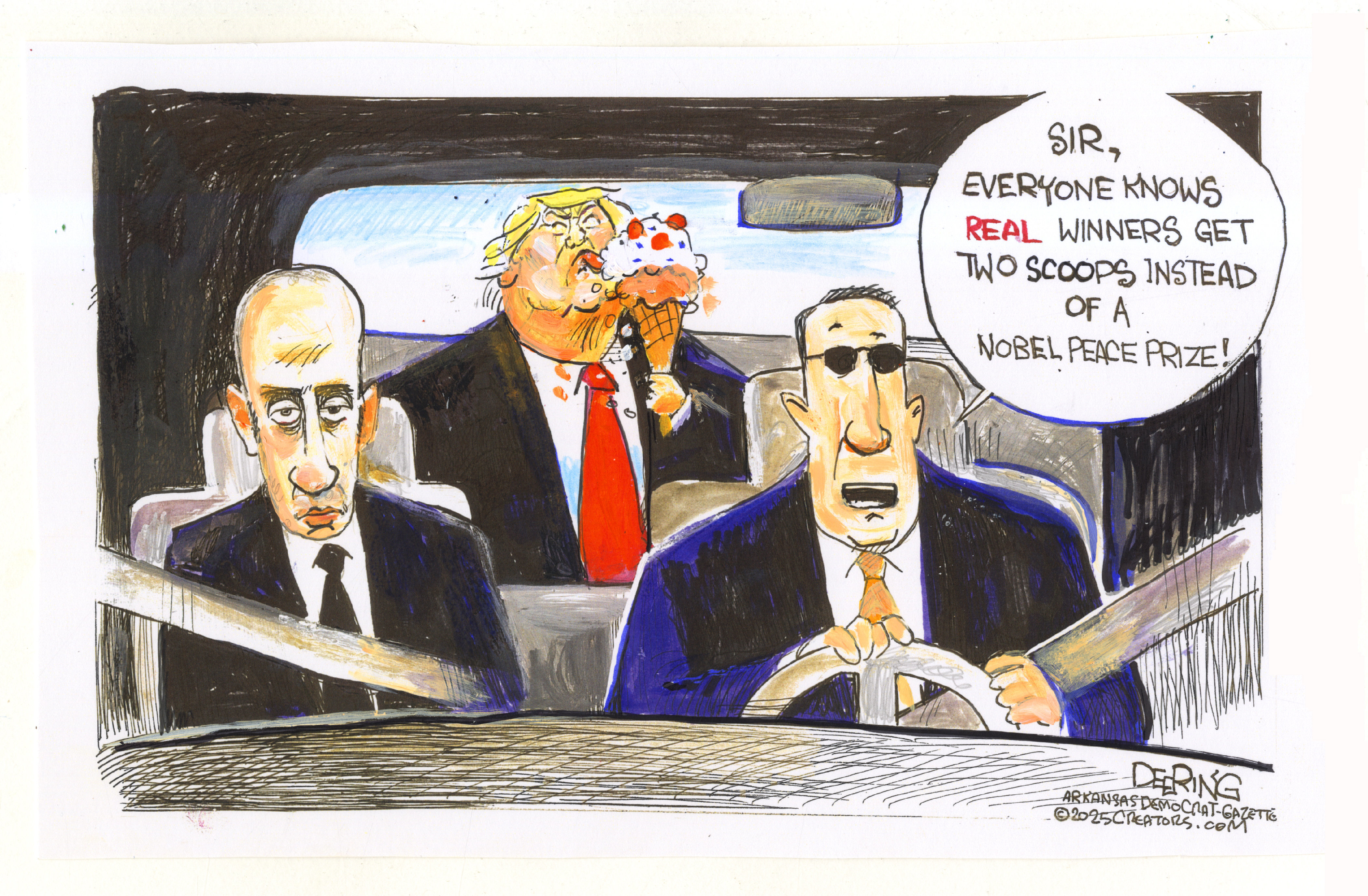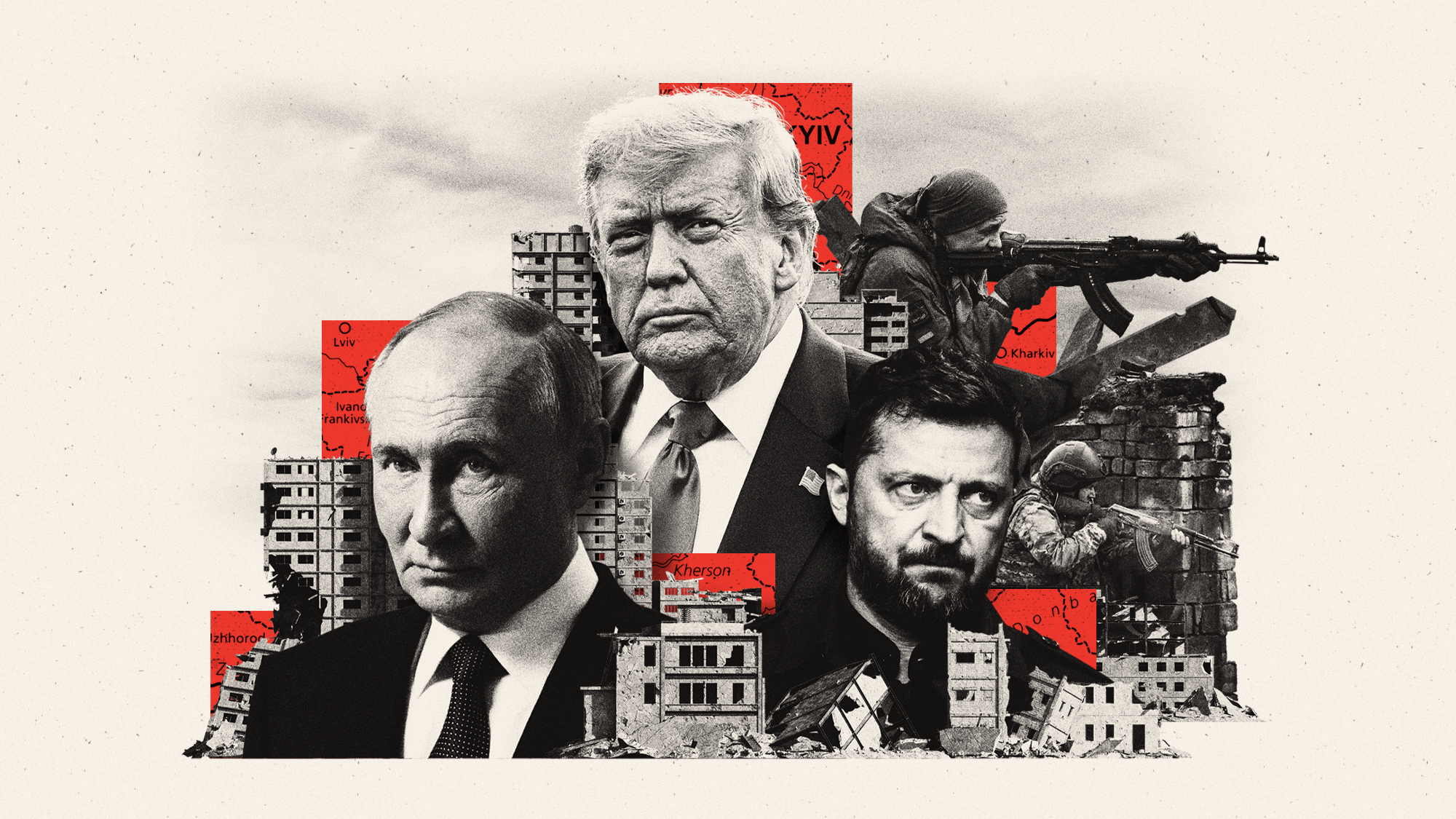How Davos lost its mojo
This year, the cognoscenti who came to the World Economic Forum did so against an uncomfortable backdrop

The smartest insight and analysis, from all perspectives, rounded up from around the web:
The global elite descended this week on the Swiss Alps for the annual World Economic Forum at Davos, said Andrew Ross Sorkin at The New York Times. But this year, the cognoscenti who came to sip pricey cocktails and snack on caviar over high-minded discussions about the world's biggest challenges did so against an uncomfortable backdrop: rising nationalism and economic populism that they "largely failed to anticipate — and may have even unconsciously generated." Just as in years past, this year's forum — whose attendees included Microsoft founder Bill Gates, JPMorgan Chase CEO Jamie Dimon, and Chinese President Xi Jinping — focused on the belief that "globalization has the potential to benefit everyone." But it was hard to ignore the fact that the events of 2016, from Brexit to the election of Donald Trump, amounted to a stunning "rebuke" of everything Davos regulars stand for.
After years of bearing the brunt of globalization's job losses and growing inequality, "millions of people who never get near this Swiss mountain retreat have finally said 'enough is enough,'" said Richard Quest at CNN. And can you blame them? There were more than 400 sessions this week covering everything from the future of America to global cybersecurity, but there was one panel conspicuously missing: "an admission that 'we are out of touch' and 'we didn't see this coming.'" If Davos attendees can't focus on policies that 99 percent of the world actually cares about, especially after getting the electoral equivalent of the middle finger, they should call it a day.
The Week
Escape your echo chamber. Get the facts behind the news, plus analysis from multiple perspectives.

Sign up for The Week's Free Newsletters
From our morning news briefing to a weekly Good News Newsletter, get the best of The Week delivered directly to your inbox.
From our morning news briefing to a weekly Good News Newsletter, get the best of The Week delivered directly to your inbox.
Those cheering the end of a world managed by Davos attendees "should be careful what they wish for," said Martin Wolf at the Financial Times. Yes, the Davos elite overreached in their zeal to erase borders, and "they ignored, above all, the obligation to share the gains of globalization with its losers." Those mistakes, however, pale in comparison with what could happen if the populists get their way. "Davos people are in business." They don't wield armies, "but rather seek to engage in mutually enriching commercial transactions, and believe in the desirability of a peaceful and essentially cooperative world." By contrast, President Trump threatens to impose punitive tariffs on important partners like China and Mexico that would trigger a global trade war. The result would be a breakdown of the global system of trade and trust that has helped maintain peace since World War II. "The simpleminded populism now on the rise will soon prove far worse than the hubris of the Davos elite."
Let's not give Davos too much credit, said Matthew Karnitschnig at Politico. The Alpine fete has always been little more than an excuse to network and rub shoulders with do-gooding celebrities like Bono and Angelina Jolie, and "if Davos groupies were that introspective, they'd have likely realized how disconnected they were from the real world years ago." In truth, they've never accomplished much, even though organizers guarantee fawning press coverage by dangling invites before ego-driven journalists. For most attendees, Davos has always been, and will remain, at best a "guilty pleasure."
A free daily email with the biggest news stories of the day – and the best features from TheWeek.com
-
 October 13 editorial cartoons
October 13 editorial cartoonsCartoons Monday's political cartoons include Donald Trump's consolation prize, government workers during shutdown, and more
-
 Can Gaza momentum help end the war in Ukraine?
Can Gaza momentum help end the war in Ukraine?Today's Big Question Zelenskyy’s request for long-range Tomahawk missiles hints at ‘warming relations’ between Ukraine and US
-
 The Israeli hostages and Palestinian prisoners being released
The Israeli hostages and Palestinian prisoners being releasedThe Explainer Triumphant Donald Trump addresses the Israeli parliament as families on both sides of the Gaza war reunite with their loved ones
-
 The pros and cons of noncompete agreements
The pros and cons of noncompete agreementsThe Explainer The FTC wants to ban companies from binding their employees with noncompete agreements. Who would this benefit, and who would it hurt?
-
 What experts are saying about the economy's surprise contraction
What experts are saying about the economy's surprise contractionThe Explainer The sharpest opinions on the debate from around the web
-
 The death of cities was greatly exaggerated
The death of cities was greatly exaggeratedThe Explainer Why the pandemic predictions about urban flight were wrong
-
 The housing crisis is here
The housing crisis is hereThe Explainer As the pandemic takes its toll, renters face eviction even as buyers are bidding higher
-
 How to be an ally to marginalized coworkers
How to be an ally to marginalized coworkersThe Explainer Show up for your colleagues by showing that you see them and their struggles
-
 What the stock market knows
What the stock market knowsThe Explainer Publicly traded companies are going to wallop small businesses
-
 Can the government save small businesses?
Can the government save small businesses?The Explainer Many are fighting for a fair share of the coronavirus rescue package
-
 How the oil crash could turn into a much bigger economic shock
How the oil crash could turn into a much bigger economic shockThe Explainer This could be a huge problem for the entire economy